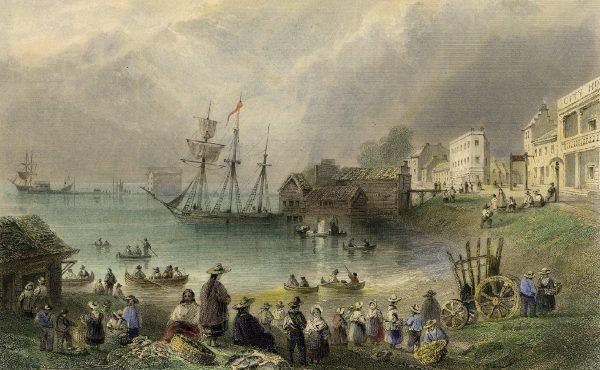TUESDAY, OCTOBER 23
Kohn Shnier Architects Lecture: Antón García-Abril
Daniels Faculty, 230 College Street, Room 103 | 6:30 p.m. – 8:00 p.m.
Anton García-Abril is founder of ENSAMBLE STUDIO and the Positive City Foundation He is also a recently appointed Professor of Architecture at the M.I.T School of Architecture + Planning. Known for its groundbreaking projects such as the Hemeroscopium House in Madrid and the SGAE Central Office in Santiago de Compostela, ENSAMBLE STUDIO’s work is conceptually and structurally experimental.
—–
WEDNESDAY, OCTOBER 24
Live Green Toronto Speakers Series: Emerald Ash Borer and Toronto’s Urban Forest
City Hall, 100 Queen Street West, Committee Room 3 | Noon – 1:00 p.m.
Toronto’s urban forest has a structural value of $7.2 billion and provides more than $60 million in ecological benefits each year. The Emerald Ash Borer (EAB) will have a major impact our urban forest as it affects Toronto’s 860,000 ash trees. Find out what’s at stake as Melissa Williams explores Toronto’s tree canopy and the many benefits it provides. Learn how to identify ash trees, the signs of Emerald Ash Borer infestation, and how you can build a healthier and more resilient urban forest in your community.
—–
THURSDAY, OCTOBER 25
CITY Institute & York Centre for Asian Research present “Both Spectacular and Mundane: The Greening of Urban China, 1990-2010″ with Alana Boland
York University, 626 York Research Tower | Noon – 2:00 p.m.
Alana Boland is an associate professor in the Department of Geography and Program in Planning at the University of Toronto. Her research examines the changing relationship between the urban political economy and environment in Chinese cities. Her current work focuses on state regulatory initiatives aimed at improving urban environmental conditions, particularly at the community-level. She is also interested in the economic-environment nexus that influenced of the development of Chinese cities during the 1950s and 1960s. This talk is the first in a series of talks on Urban Asia at York University.
—–
THURSDAY, OCTOBER 25
Tracking Adaptation: Climate Change, Global Health, and the Methodological Messiness of the Adaptation Challenge
Sandford Fleming Building, 10 King’s College Road | 4:00 p.m. – 6:00 p.m.
Climate change and its impacts are now irrefutable and unavoidable. Changes in global climate will have wide-ranging implications for human health. Human systems will have to adapt. While our appreciation of health impacts and vulnerability has increased, there has been relatively little attention given to methods for tracking adaptation at a global scale.




